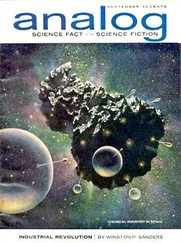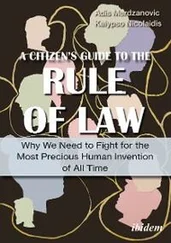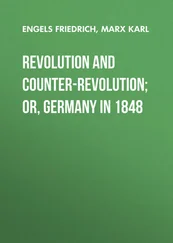The Soviet Union remained communist until 1991.
SEVEN.
HITLER’S BEER HALL PUTSCH: 1923
What makes a good putsch?
Unlike the revolution, its more belligerent cousin, few have possessed the delicate touch to successfully pull off this somewhat subtle affair. Adolf Hitler, as we now know, wasn’t known for his delicacy.
A successful putsch is a lighthearted event, the fiesta of government overthrows. The putschists are only “giving the people what they want,” which is, of course, a new government run by the putschists. A well-run putsch should seem to magically spring from the streets and encounter light or no resistance, spilling only a soupçon of blood. Nothing dims the gleeful prospects of a good putsch faster than unnecessary bloodshed.
If there ever was a country ready for a putsch, it was Germany in 1923. And Munich was the perfect spot. Munich beerhalls were tailor made for putsch gathering spots: large caverns with food and beer to ply hungry irregular troops, perfect for inflammatory speeches and weapons caches. The political and military leaders of Munich and the entire province of Bavaria all detested anything vaguely resembling democracy and hungered for the security of a dictatorship, although no one could quite agree on what flavor. As the topper, the entire leadership of the region supported the overthrow of, well, themselves. They just had not yet figured out all the details, such as who would lead the new government.
Hitler, his rabble-rousing political skills already in full flower, had by then assembled many of his all-star cast of supporting characters that later successfully waged the largest, most devastating war of all time. The crew was headlined by the jovial World War I fascist hero of the air, Hermann Goering, and backed by the incomparably Prussian General Erich Ludendorff, the former leader of the spectacularly unsuccessful but widely admired German war effort in World War I.
Hitler was ready. Munich was ready. The beer was cold. There were plenty of unemployed former soldiers milling about, eager to put their bitter aggression to good use. It seemed like a slam dunk. But it all ended less than a day later with blood in the streets and short jail terms.
How could it have possibly failed?
Adolf Hitler— a decorated veteran of the German army in World War I, native-born Austrian, nonsmoker, vegan, budding visual artist, uneducated, skill-free weirdo with absolutely no scruples, who somehow came up with the idea that he should be running the world and then convinced a lot of other people this sounded like a really good idea.
Skinny — Joined the nascent Nazi party in 1919 and by an incessant haranguing of the populace took the little party into the big leagues.
Props — Made great use of his odd, blinkless stare by becoming a riveting speaker.
Pros — Knew how to sway a crowd.
Cons — Thought he should be running the world and continually threatened to kill himself if he wasn’t given the chance.
General Erich Ludendorff— Hitler’s ace-in-the-hole for the putsch. The bumbling Prussian who had blown the once-every-thousand-years opportunity to crush England and France in a one-front war after the Russians bowed out of World War I, had saved his reputation by inventing the “stabbed in the back by the lousy politicians on the home front” excuse, before fleeing to Sweden at the end of the war sporting a false beard.
Skinny — Ludendorff’s participation ensured that Hitler’s ragtag army of street thugs would get instant street cred and be taken seriously by the average right-wing sympathizing citizen of Munich.
Props — Took advantage of the fact that a uniform ablaze with medals and the too-small-for-his-head spiked helmet remained an oddly comforting image to most Germans.
Pros — Looked every inch what he was, a fantastically violent retired general turned naïve revolutionary.
Cons — Suited up for battle dressed in a tweed suit the first night of the putsch.
In 1923 Germany was chaos. After losing World War I it suffered every kind of revolution possible — Communist, monarchist and right wing — pretty much everything except democratic. The widely despised legal government, the Weimar Republic, hung on for dear life amid the raging winds of revolution.
The German economy was also a complete disaster. A key reason was that the German government didn’t have the money to pay the high amount of reparations demanded by the French, who were feeling quite vindictive that their country had been invaded, fought over for four years, and had lost millions of their citizens and soldiers. Before the war Germany had been the growing power in Europe, with the largest population of the western countries and the most technically advanced industry. It just didn’t make sense to most Germans that they had lost the war, especially to the French, their sagging, democratic, arch-enemy whom Bismarck had so easily manhandled in the Franco-Prussian War of 1870. But now, unemployment in Germany was high, and rampant inflation — at its worst in 1923 when prices doubled every two days — had eroded the currency to the point that a cup of coffee cost billions of marks. Wheelbarrows had replaced wallets.
The Prussian officer corps longed for the inherent stability of a country organized around the codes and traditions of the Prussian military killing machine that they all had come to know, love, and trust. It was an article of faith among the defeated and disgraced Prussian officers of noble birth, who had marched the country into war before inadvertently plunging it into the chaos of revolution, that their glorious army was the crucial backbone of the German nation. They believed it was their duty to make a last stand for unchallengeable, oligarchical rule — or their country might disappear under the converging waves of radical Communism, radical democracy, or an evil and unimaginable combination of both.
The most vehement of these former soldiers were the “Freikorps,” groups of former soldiers secretly hired, armed, and silently sanctioned by the legitimate government into illegal paramilitary companies. The Freikorps were tacitly given a free hand in crushing the revolutionaries of the left in exchange for propping up the Social Democratic regime of President Friedrich Ebert, who had inherited the tottering German state after the abdication by the Kaiser.
But the Freikorps were uncontrollable by anyone, including the hard-bitten officers who commanded them. The troops were invariably front-line veterans who had survived years of the unimaginable horror of trench warfare, and could in fact no longer exist in a peaceful society. Many of the German masses agreed with the aim of the Freikorps, if not the jackbooted tactics they had perfected on the rest of Europe.
The revered loser of World War I, Field Marshal Ludendorff — he of the big lie that Germany had been “stabbed in the back by the November criminals” to save his skin — was turning out to be an impatient, naïve putschist. He had been one of the organizers of the Kapp Putsch in 1920, a failed attempt to overthrow the Weimar Republic, and with its collapse was forced to once again flee Germany in disguise. Ludendorff ended up in Munich, where he installed himself in a suburban villa and began to interview candidates for the open position of German dictator.
Adolf Hitler, a complete nobody at the end of the war, with a war record blemished solely by his own survival, also landed in Munich, where his army regiment put him to work haranguing returning soldiers against the evils of Communism. Marked down as a promising intelligence officer, he was assigned to keep tabs on the burgeoning right-wing revolutionary scene, which resulted in his visit to the tiny, nascent Nazi party in a beer hall on September 12, 1919. Impressed by his ability to shout down the half-dozen members of the party, they invited Adolf to join them. A week later he signed up.
Читать дальше












